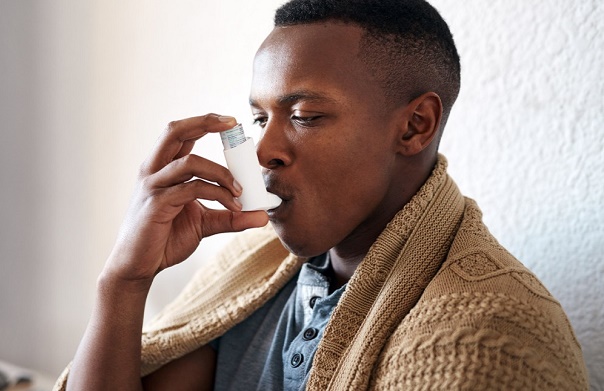BY SUNDAY OMEIKE
It is the era of COVID-19, an infectious disease caused by the novel coronavirus that has resulted in three million cases worldwide. Countries initiated lockdowns to curb the spread of the respiratory illness, still without a cure, and over two million are still battling for their lives while a million have recovered so far. Recovery led to global campaign against stigmatization of survivors, and recently, Nigeria with over 200 recoveries joined the cause.
The many signs and symptoms of COVID-19 are still being understood but commonly known progression is fever, coughs then shortness of breath that would require hospitalization. Nigerians have been well sensitized about these symptoms and a major preventive measure is social distancing to avoid respiratory droplets, therefore coughing and sneezing in public places are met with disdain rather than the usual “sorry” or “bless you” due to the CODIV-19 era.
However, these common COVID-19 symptoms — except for fever — mirror those suffered by people battling with other forms of respiratory illnesses such as pneumonia, bronchitis, chronic obstructive pulmonary disease (COPD) and also asthma.
According to the World Health Organization (WHO), asthma affects people of all ages. The disease is incurable and could be fatal in the event of a sudden attack. It is however non-communicable unlike COVID-19.
The global health agency’s 2019 asthma figures show that 200 million people are affected globally and over 80% of asthma-related deaths occur in low and lower-middle income countries. Nigeria is one of such countries, and a 2017-2018 survey reported diagnosis of approximately 13 million asthmatic individuals in the country.
Due to similarities in symptoms of both diseases, there is the possibility of people suffering asthma attack being prejudiced as COVID-19 patients by hospitals. While COVID-19 survivors are fighting stigmatization after winning the battle to life, should asthmatic individuals and others suffering some form of non-communicable respiratory illnesses suffer stereotyping and possibly lose the right to life?
As one who suffers this condition, the concern has grown into palpable fear as I recollected two scenarios I previously found myself before COVID-19 set foot in the country.
Sometime in November 2019, I woke up to a sudden asthma attack — few hours before dawn — that defied reprieve usually offered by a Ventolin inhaler, 8 mg of Salbutamol tablets was ineffective and natural tricks brought no reprieve. Sauntering out of my apartment alone in the dark to the major road, vigilantes who saw my struggles rallied around me until I got a commercial motorcycle that raced to the clinic in record time. Coughing, sweating and breathlessly struggling for life, two nurses and a doctor threw caution into the wind and swung into action to save me. Two hours later I was on my way to work!
Similarly, I recently shared, with three other occupants in close proximity, a taxicab moving behind a heavy-duty truck emitting a thick cloud of smoke from its exhaust. Despite the use of handkerchief, bronchospasm set in within minutes and led to sneezes, intense coughs and breathing difficulty. Sympathy reigned as I took long deep breaths after two puffs of my Ventolin inhaler. I regained proper use of my lungs and the driver further helped by tactfully overtaking the truck.
I doubt asthmatic individuals would retain luxury of this emergency response and empathy enjoyed in those situations in the present reality due to similarity of symptoms with COVID-19!
Coughing and sneezing are now frowned against in the public and could elicit abusive words, while signs of breathing difficulty requiring urgent medical attention could lead to commuters and onlookers scampering to safety. Worse still, the situation could turn into a spectacle, especially with this clout-chasing social media populace that could make a video of the incident and term it “a COVID-19 patient about to die on the street after showing symptoms” instead of helping a dying individual.
This situation is already upon us, with reports of public stigmatization emanating from Bauchi state, and hospitals reportedly threading with caution before accepting outpatients, and outright rejection in many, especially those exhibiting fever and respiratory symptoms. This also recently resulted in the loss of a pneumonia-suffering individual at the General Hospital in Lagos state. Rushed to the hospital, he was left unattended until his death which the hospital wanted to report as suspected COVID-19. This could be the new, sad and undeserved reality of millions of individuals managing respiratory illnesses in Nigeria.
Therefore, as the lockdown begins to ease in major cities across the country from next week, stereotyping and stigmatization of people in respiratory crisis should be avoided by medical personnel and the public. We should acknowledge the possibility of encountering and helping asthma sufferers, and others with chronic respiratory illnesses not related to COVID-19, while still practicing safety measures. Their survival could depend on those first few minutes of the encounter.
Copyright 2025 TheCable. All rights reserved. This material, and other digital content on this website, may not be reproduced, published, broadcast, rewritten or redistributed in whole or in part without prior express written permission from TheCable.
Follow us on twitter @Thecablestyle

